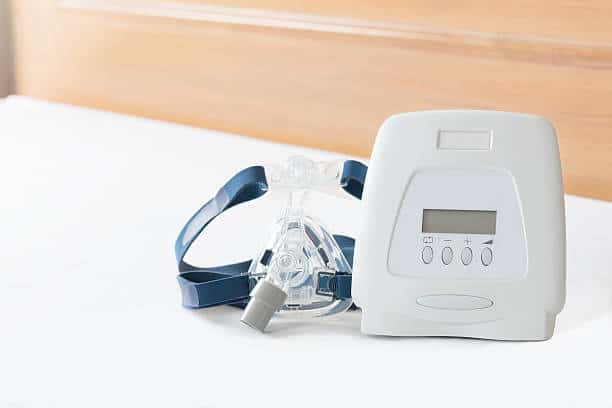Sleep disorders and metabolic disruptions have taken center stage in modern health discussions. In particular, obstructive sleep apnea, often termed sleep apnea or obstructive sleep apnoea, has been identified as a significant concern. More surprising is the realization that sleep apnea may have far-reaching implications on conditions like Type 2 diabetes, especially concerning glucose metabolism.
While the link between breathing disruptions and blood sugar levels might seem unrelated at first glance, emerging research suggests a profound connection that could redefine our understanding of both conditions. Read on to discover how intertwined these two health issues truly are, and why understanding this connection is crucial for comprehensive health management.
Understanding Obstructive Sleep Apnea (OSA)

OSA is a sleep disorder where breathing repeatedly stops and starts during sleep. This phenomenon is usually a result of throat muscles intermittently relaxing and blocking the airway. For patients with obstructive sleep, the common experiences include loud snoring, restless nights, and feeling exhausted even after a full night’s sleep.
One key risk factor for OSA is obesity. In fact, obese patients are often more susceptible to sleep apnea because of the potential for fat deposits around the upper airway that can obstruct breathing.
Take Note: It’s not just about weight; family history, a narrowed airway, and chronic nasal congestion also play roles in the development of this condition.
Also Read: An Introduction Guide to Obstructive Sleep Apnea (OSA)
Diving Deeper into Type 2 Diabetes
Type 2 diabetes primarily revolves around the body’s ability (or inability) to regulate glucose, leading to impaired glucose tolerance and insulin resistance.
In layman’s terms, it’s when the body either doesn’t produce enough insulin or the cells are resistant to the insulin being produced, leading to elevated blood sugar levels.
- Core Problem:
At its heart, Type 2 diabetes is about the body’s challenges with glucose management. Whether it’s insufficient insulin production or cellular resistance to insulin, the end result is typically higher blood sugar levels.
- Insulin Dynamics:
Insulin sensitivity and resistance are crucial for glucose tolerance. Their effective functioning determines how well our body uses sugar, ensuring our cells receive the energy they need from glucose.
Grasping these fundamental concepts provides a clearer perspective on Type 2 diabetes, its challenges, and potential management strategies.
The Role of Continuous Positive Airway Pressure (CPAP)

For those grappling with OSA, the CPAP has been a beacon of hope. This device maintains an open airway during sleep by delivering a steady stream of air through a mask. Beyond just managing sleep apnea, CPAP has broader implications for health.
By ensuring uninterrupted sleep, CPAP aids in stabilizing glucose levels. This uninterrupted rest allows the body to better manage its glucose metabolism, indirectly benefiting those with glucose intolerance. Regular and effective use of the CPAP machine has shown improvements in glucose tolerance in several users.
Also Read: What is a CPAP Machine, and What Does It Do?
Sleep Apnea and Its Broader Health Impacts
Sleep apnea, especially of the obstructive kind, isn’t just about snoring or restless nights. Its ripple effects on health are manifold. Here are some of the broader health impacts connected to sleep apnea:
Cardiovascular Disease
This refers to a group of conditions affecting the heart and blood vessels. It includes problems like coronary artery disease, which can lead to heart attacks and other conditions that affect your heart’s muscles, valves, or rhythm. When the heart and its associated pathways don’t function correctly, it can have life-threatening consequences.
Connection with Sleep Apnea
When someone with OSA repeatedly stops and starts breathing, it puts added stress on the heart and blood vessels, increasing the risk of cardiovascular issues. Additionally, there is a significant connection between sleep apnea and Type 2 diabetes, which can further complicate cardiovascular health.
Blood Pressure Fluctuations
Blood pressure is a measure of the force that your heart uses to pump blood around your body. It naturally fluctuates throughout the day, but consistent high readings indicate a problem. High blood pressure means that the heart is working harder than it should, which can weaken it over time and lead to other health complications.
Connection with Sleep Apnea
Episodes of interrupted breathing during sleep apnea can lead to sudden drops in blood oxygen levels. This increases blood pressure and strains the cardiovascular system, posing potential risks for heart-related complications.
Sleep Heart Health Study Insights
An extensive research project aimed at uncovering the intricate relationship between the quality of sleep and overall heart health. It delves into how sleep patterns and disorders might influence or be influenced by heart conditions.
Findings
The study found noteworthy links between sleep-disordered breathing (like that seen in OSA) and elevated blood pressure. These findings underscore the importance of quality sleep for maintaining cardiovascular health.
Recognizing the extensive health implications of sleep apnea highlights the critical nature of early detection and appropriate management of this disorder.
The Synergy of Sleep, Glucose, and Insulin
The web of interactions between sleep, glucose regulation, and insulin sensitivity is intricate. Disrupted sleep patterns, like those seen in sleep apnea, can play havoc with glucose metabolism. The result? Impaired glucose tolerance and increased insulin resistance, both of which are precursors to Type 2 diabetes.
Managing Sleep Apnea for Better Health
Recognizing and managing sleep apnea is not just about improving nighttime breathing. It’s a comprehensive approach to better health. Regular health check-ups, weight management, and consistent use of devices like CPAP can go a long way in not just managing sleep disturbances but also in stabilizing other related health parameters.
Conclusion
The interlinkages between obstructive sleep apnea and Type 2 diabetes highlight the need for an integrated approach to health. Gaining knowledge about how these conditions interact is crucial. Understanding the risk factors and consequences enables individuals to adopt more effective health management strategies.
The journey to better health starts with awareness and proactive measures. By addressing sleep apnea and its implications, we not only improve our nightly rest but also safeguard our long-term metabolic well-being. For those seeking top-quality solutions to manage sleep apnea effectively, visit the Resway shop here to explore a range of CPAP accessories tailored to enhance your sleep quality.




